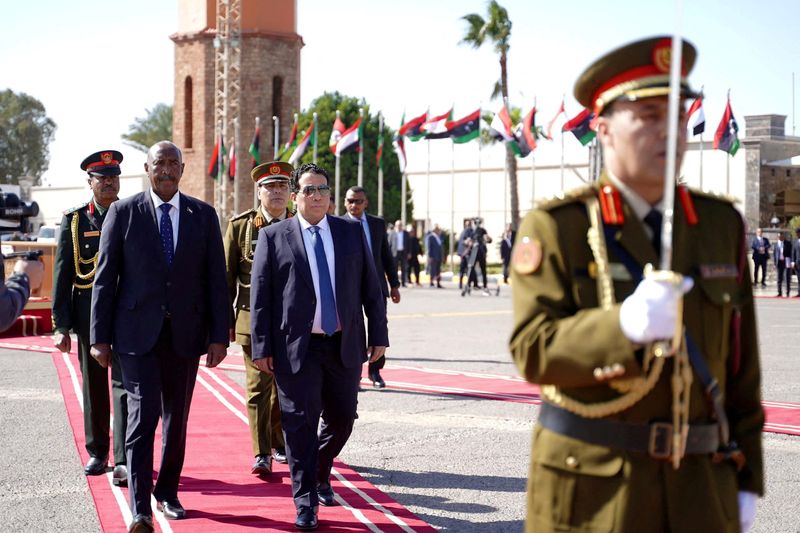BENGHAZI (Reuters) – Libya's three main leaders said on Sunday they had agreed on the “need” to form a new unity government to oversee long-delayed elections.
Libya's political process to resolve more than a decade of conflict has stalled since elections scheduled for December 2021 collapsed amid disputes over the eligibility of key candidates.
The leaders are Presidential Council (PC) President Mohamed Menfi, High State Council (HSC) President Mohamed Takara, and House of Representatives (HoR) Speaker Aguila Saleh in Benghazi, both based in Tripoli.
In a joint statement, the three leaders also called on the United Nations Mission in Libya and the international community to support their proposal.
The companies said they had agreed to set up a technical committee to “consider the controversial issues.”
The two met in Cairo at the invitation of Arab League Secretary-General Ahmed Aboul Gheit.
“We believe that the measures agreed today are a very important beginning, an outcome that responds to the ambition of the Libyan people to hold elections,” Menfi told the media after the meeting.
Menfi came to power in 2021 when Prime Minister Abdulhamid al-Dbeibah's Government of National Unity (GNU) was installed through a UN-backed process, but parliament no longer recognizes its legitimacy.
Mr Dbeibah has vowed not to hand over power to a new government without national elections.
The House of Representatives was elected in 2014, and the Higher National Council was established as part of the 2015 political agreement and is drawn from the parliament elected in 2012.
Last week, Central Bank Governor Sadiq Kabir sent a letter to parliament asking for approval of a new unity government and national budget for GNU extent spending.
International diplomacy toward resolving the Libyan conflict has focused on promoting parliamentary and presidential elections to replace transitional political institutions such as the HoR, HSC, and GNU.
All major political actors in the country have called elections, but many Libyans wonder if they are really seeking a vote that could remove large swaths of them from power. There is.
Libya has had little peace since the 2011 NATO-backed uprising, and in 2014 it split into eastern and western camps, each of which is ruled by rival regimes.
(Reporting by Ayman Werfalli; Editing by Giles Elgood)


